September 28th Visit To The Midway (Page Two)
We got our 0.8 mile post lunch walk in (the 87 degree weather was NOT in the plan) and arrived at the harbor to see the Midway just another block away. We can do it!
Did You Know? - USS Midway (CVB/CVA/CV-41) was an aircraft carrier of the United States Navy, the lead ship of its class. Commissioned a week after the end of World War II, Midway was the largest ship in the world until 1955, as well as the first U.S. aircraft carrier too big to transit the Panama Canal. A revolutionary hull design, based on the planned Montana-class battleship, gave it better maneuverability than previous carriers.
Midway was laid down 27 October 1943 by Newport News Shipbuilding Co., Newport News, Virginia; launched 20 March 1945, sponsored by Mrs. Bradford William Ripley, Jr.; and commissioned on 10 September 1945 (eight days after the Surrender of Japan) with Captain Joseph F. Bolger in command.
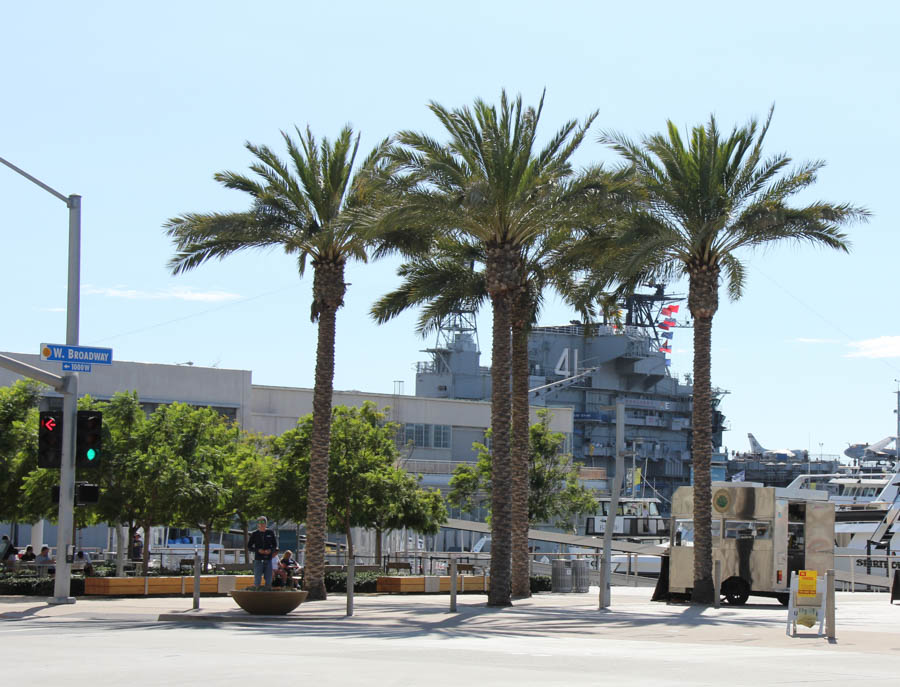
Here we come!
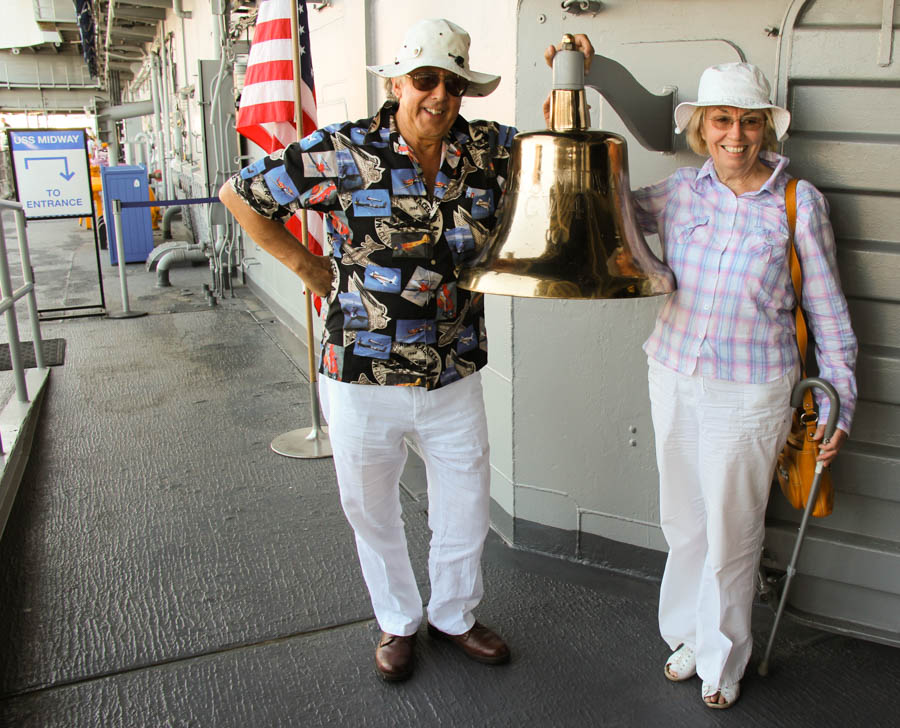
After making it up the elevator, we enter the "hangar deck"

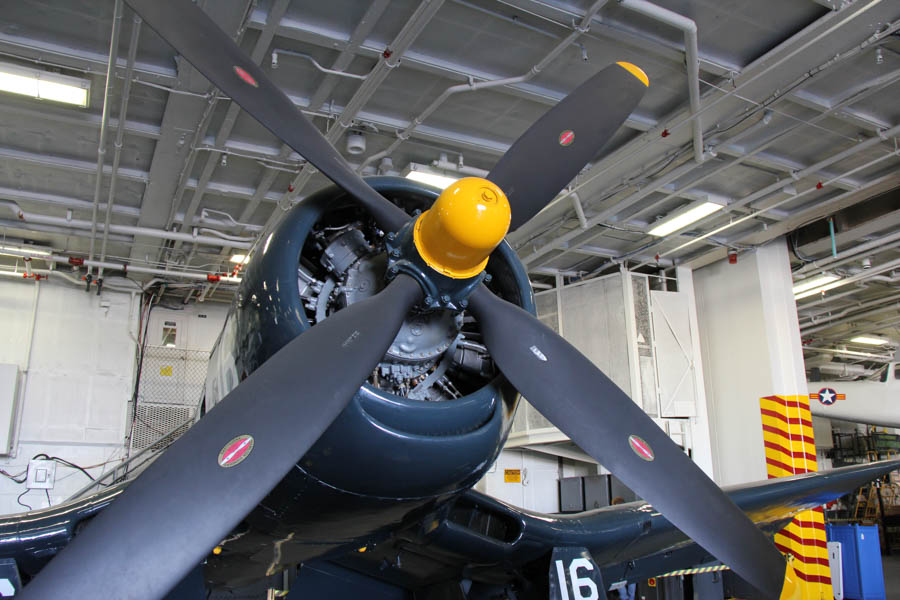
Amazing machines
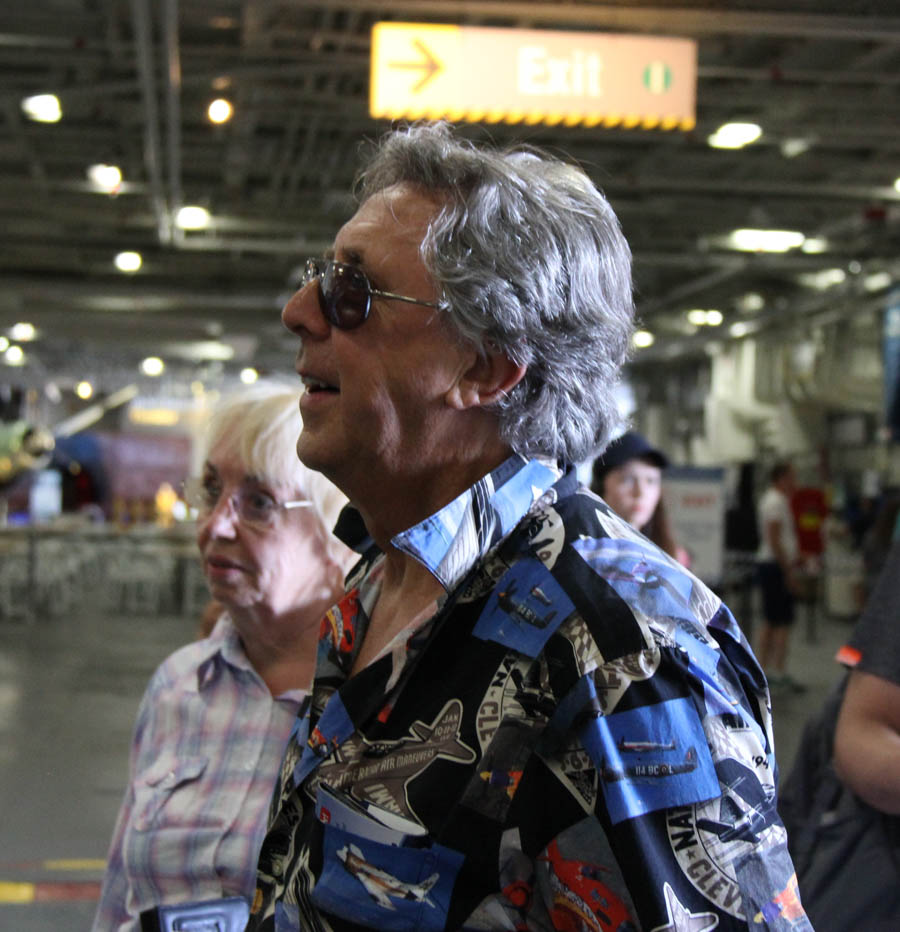
Someone is really liking this tour!

The Corsair was a mean machine!
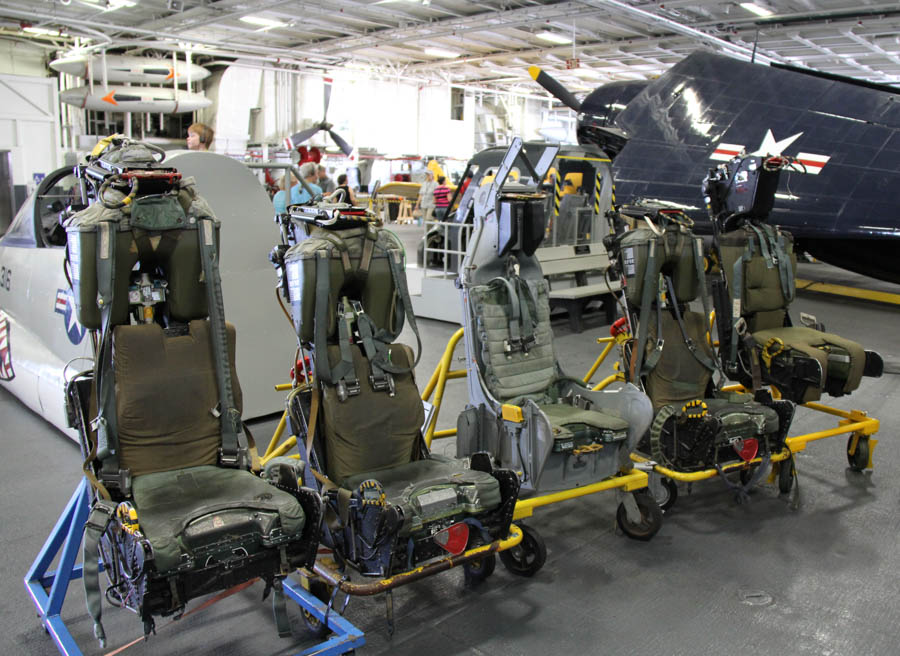
Ejection seats have not changed a lot!

Conflag?
Did You Know? - A conflagration is a large and destructive fire that threatens human life, animal life, health, and/or property. It may also be described as a blaze or simply a (large) fire.
Each hangar bay has a Conflag Station where a man is constantly on watch whenever aircraft are located on the hangar bay. The bays can be divided by the division doors; elevator doors can be closed remotely to keep a fire on an aircraft elevator from spreading into the hangar and vice versa. AFFF deluge systems are in the lower stage weapons elevators that terminate on the hangar deck.
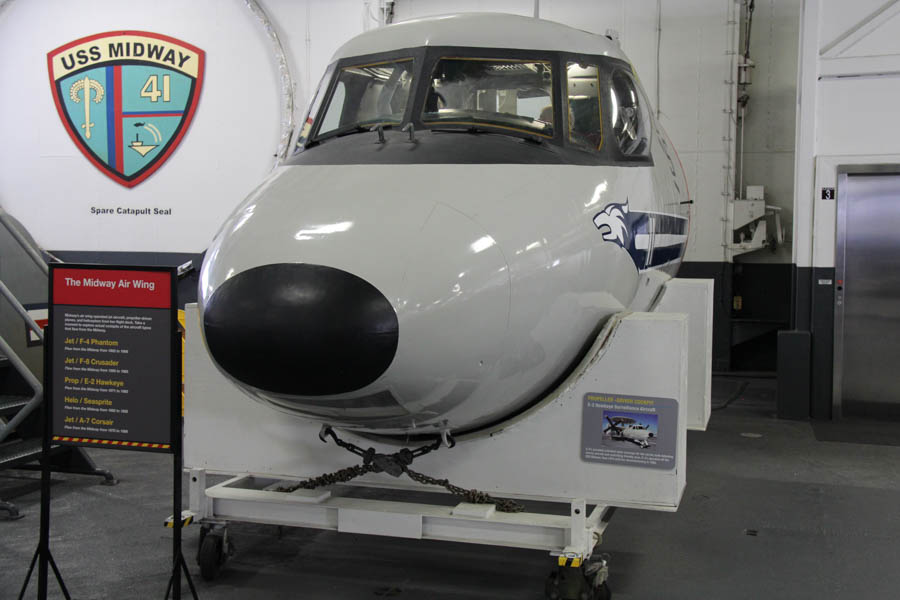
Looks like a happy face

Pratt & Whitney.... 2,000 horse power engines with 18 cylinders
Did You Know? - The Pratt & Whitney R-2800 Double Wasp is a twin-row, 18-cylinder, air-cooled radial aircraft engine with a displacement of 2,800 in³ (46 L), and is part of the long-lived Wasp family.
The R-2800 is considered one of the premier radial piston engines ever designed and is notable for its widespread use in many important American aircraft during and after World War II. During the war years, Pratt & Whitney continued to develop new ideas to upgrade this already powerful workhorse, most notably water injection for takeoff in cargo and passenger planes and to give emergency power in combat.

An amazing display of sheer power!
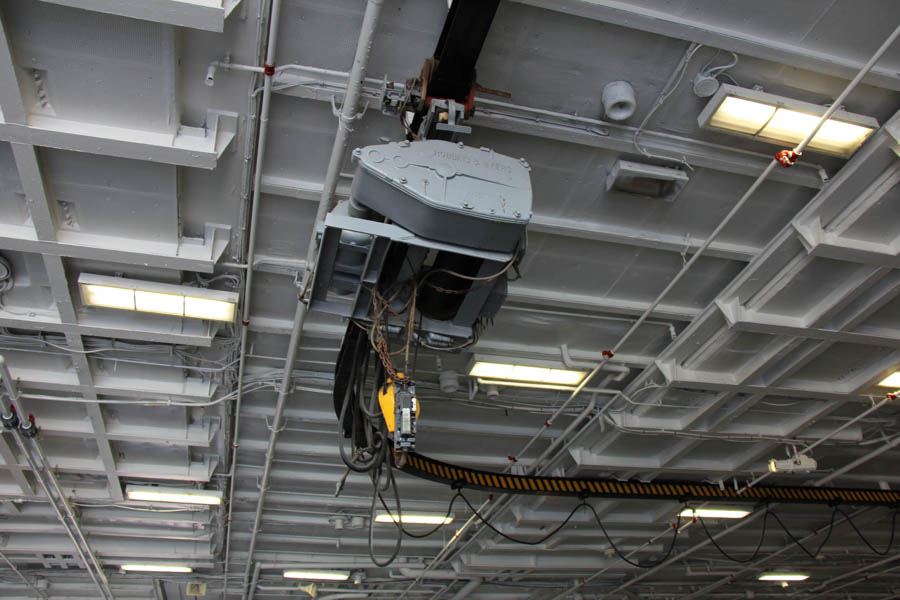
Cranes are all over the ceiling so equipment can be moved around easily

Where do they put all the equipment needed? Several floors below!
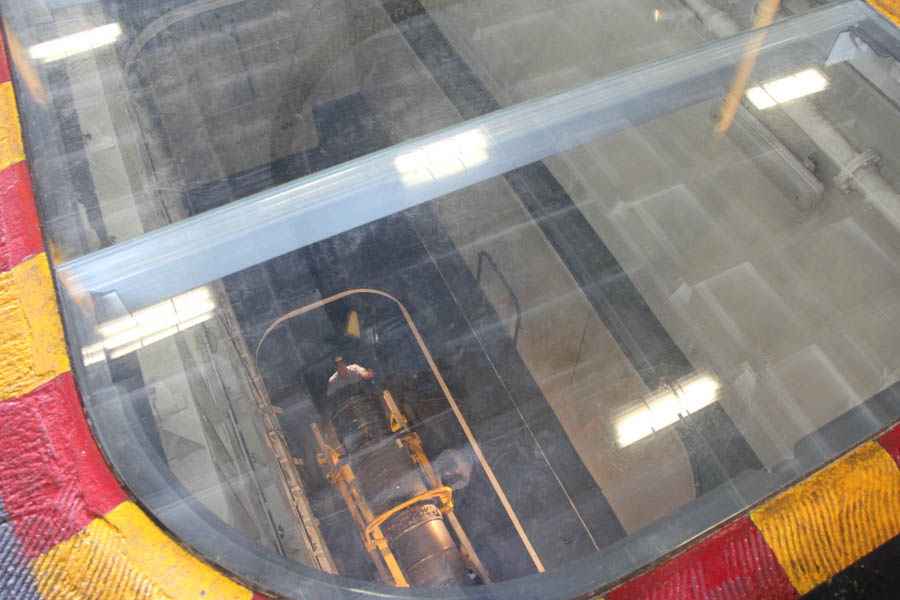
Standing on the glass, one can see four decks down to the stores area!
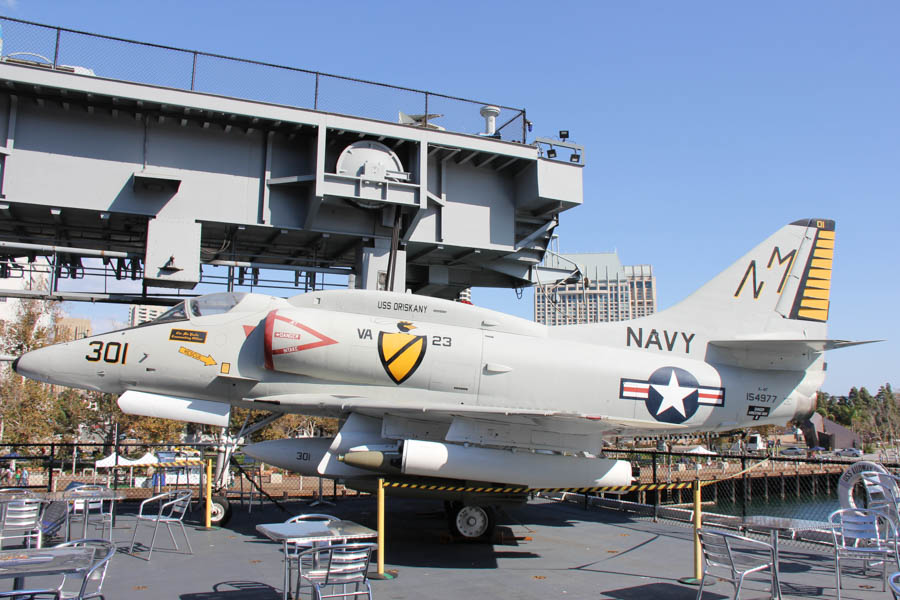
Serious machine on one of the two elevators
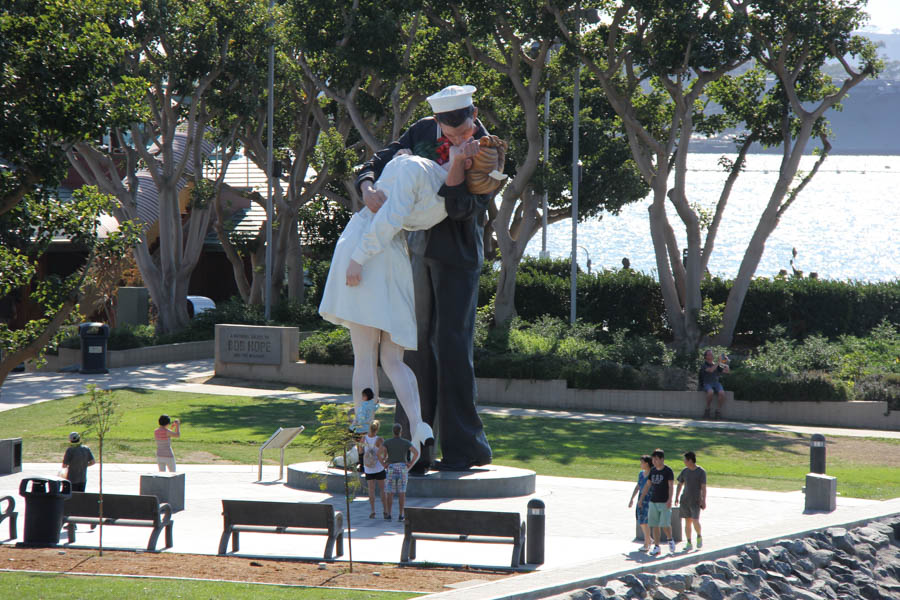
"The Kiss"
Did You Know? - V-J Day in Times Square (also V-Day and The Kiss) is a photograph by Alfred Eisenstaedt that portrays a U.S. Navy sailor grabbing and kissing a stranger—a woman in a white dress—on Victory over Japan Day ("V-J Day") in New York City's Times Square on August 14, 1945.
The photograph was published a week later in Life magazine, among many photographs of celebrations around the United States that were presented in a twelve-page section titled "Victory Celebrations".

A view from the elevator platform looking forward

Serious armament!

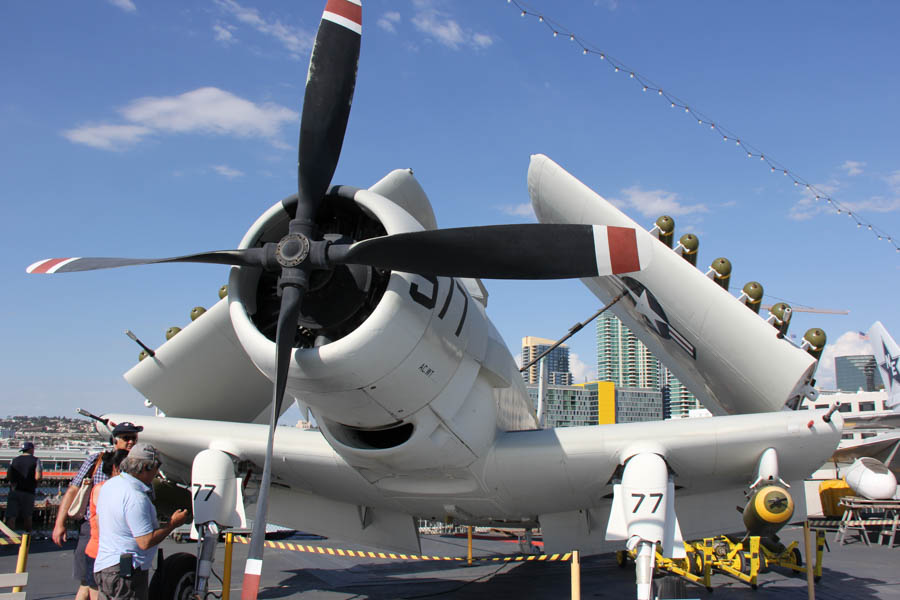
Armed to the teeth!
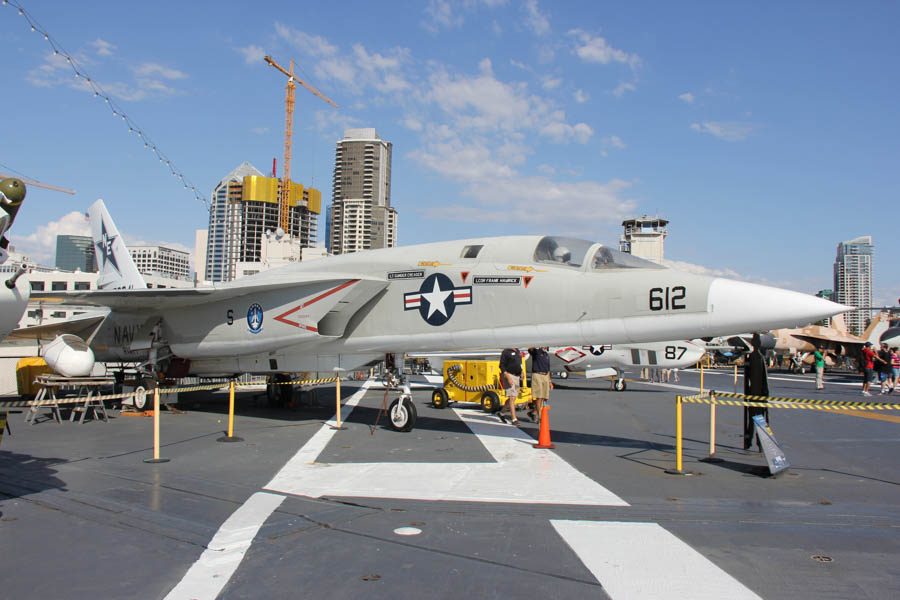
The North American Vigalente
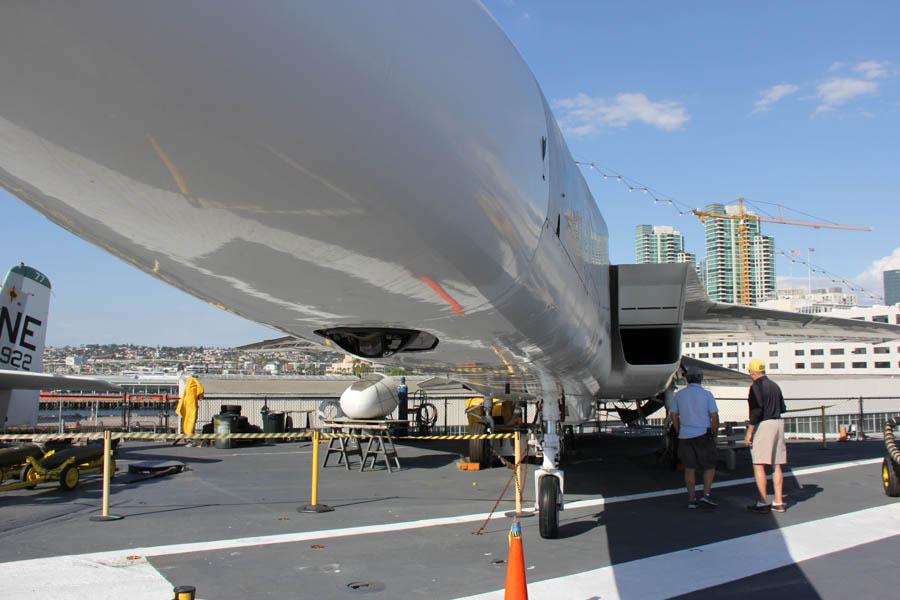
Note the camera at the bottom of the nose area....
These guys flew before and after an air strike to determine the damage
Did You Know? - In 1953, North American Aviation began a private study for a carrier-based, long-range, all-weather strike bomber, capable of delivering nuclear weapons at supersonic speeds.
This proposal, the North American General Purpose Attack Weapon (NAGPAW) concept, was accepted by the United States Navy, with some revisions, in 1955.
A contract was awarded on 29 August 1956. Its first flight occurred two years later on 31 August 1958 in Columbus, Ohio.
The North American A-5 Vigilante was a carrier-based supersonic bomber designed and built by North American Aviation for the United States Navy. Its service in the nuclear strike role to replace the Douglas A-3 Skywarrior was very short; however, as the RA-5C, it saw extensive service during the Vietnam War in the tactical strike reconnaissance role.
Prior to the unification of the Navy designation sequence with the Air Force sequence in 1962, it was designated the A3J Vigilante.
156 were built and delivered to the military.
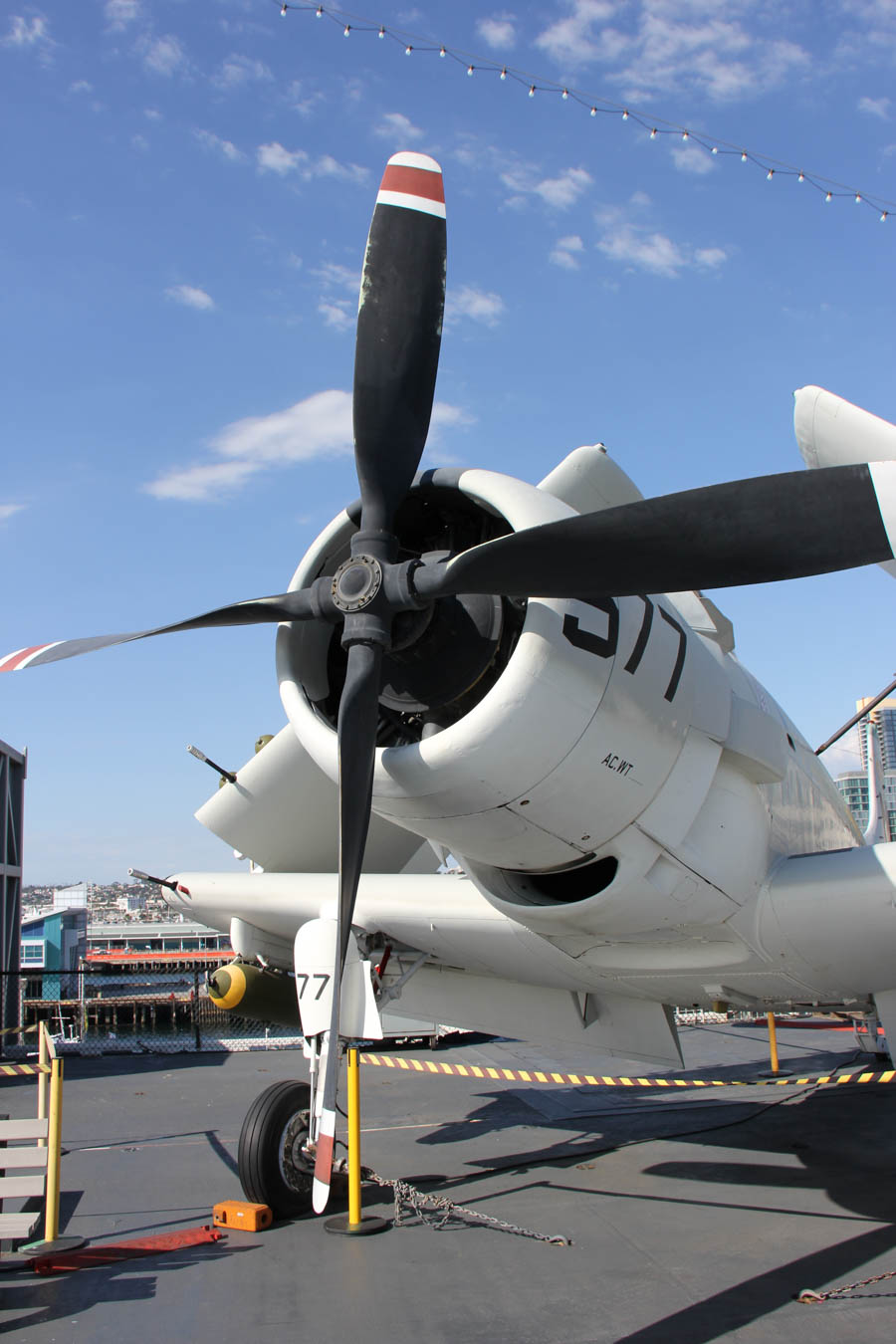
Love those folding wings

Grumman built almost 2,000 of these machines
Did You Know? - The Grumman F9F/F-9 Cougar was an aircraft carrier-based fighter aircraft for the United States Navy. Based on Grumman's earlier F9F Panther, the Cougar replaced the Panther's straight wing with a more modern swept wing. Thrust was also increased significantly. The Navy considered the Cougar an updated version of the Panther, despite having a different official name, and thus Cougars started off from F9F-6 upward.

Under the cockpit and a little forward were sensor/cameras to gather intelligence
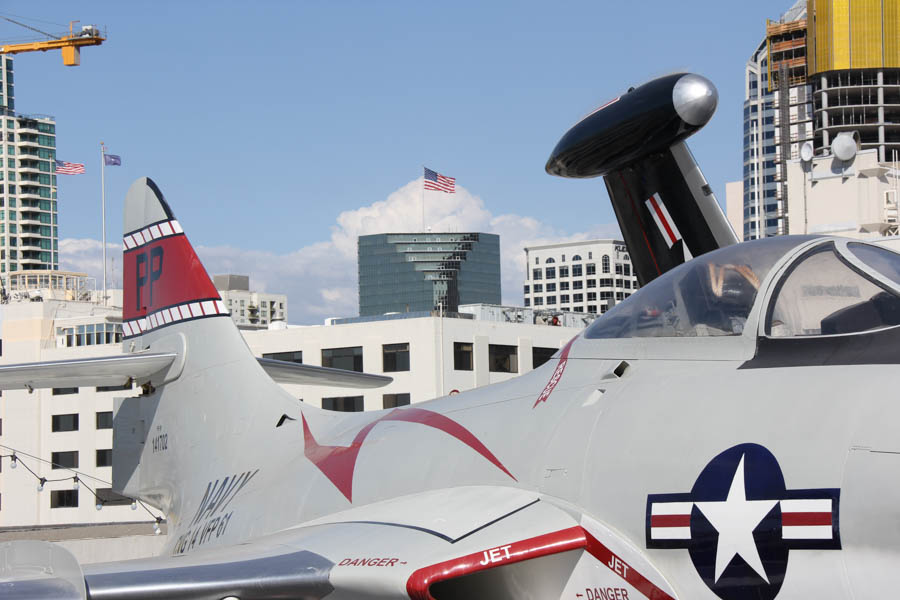
The champagne glass building!
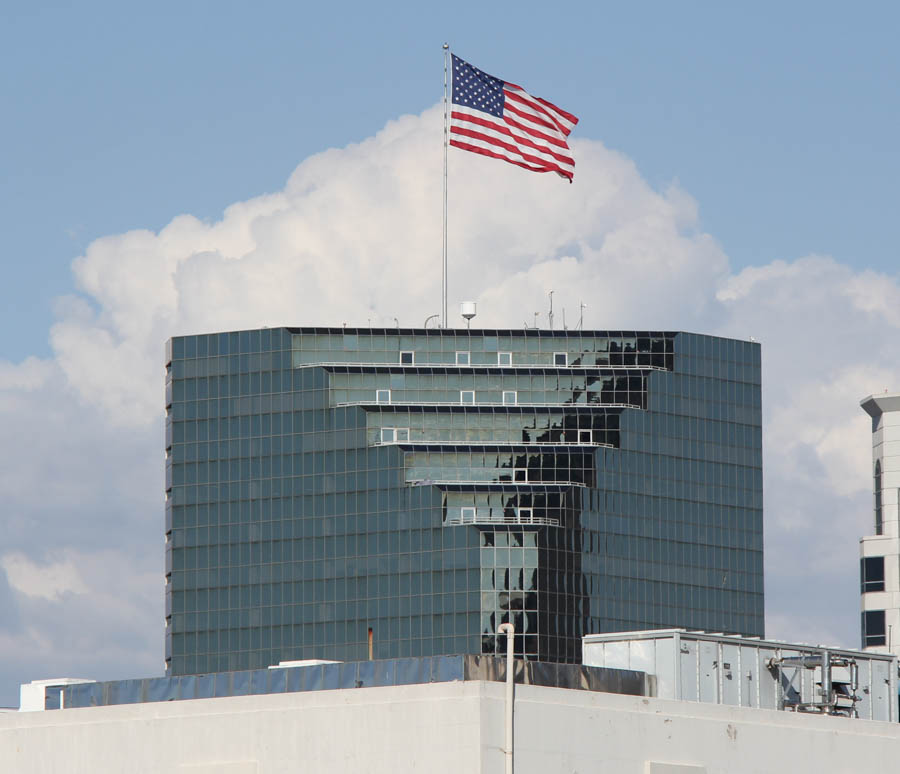
A better view
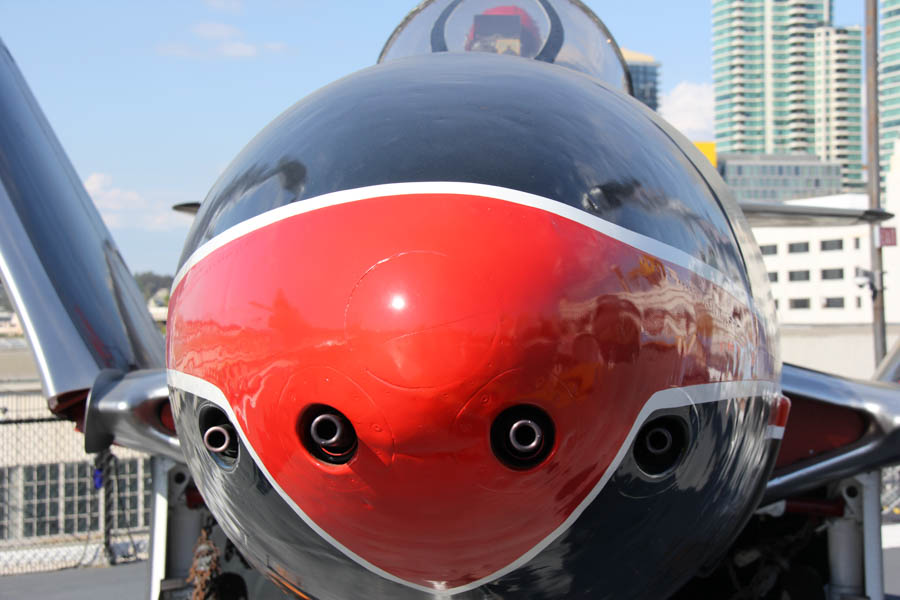
Four 50 caliber cannons meant business on this machine!
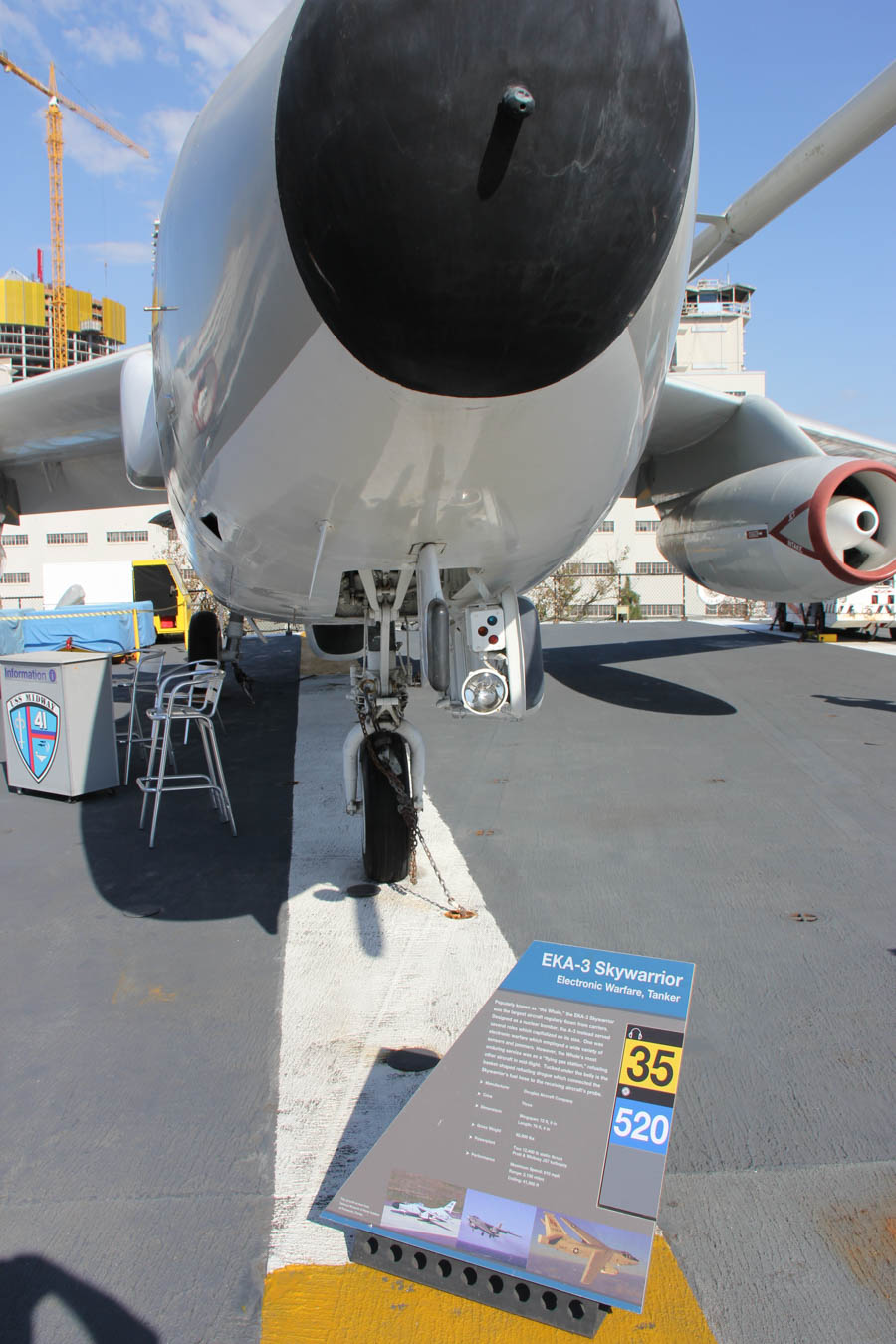
Electronic ware fare and a tanker... Quite a universal machine
Did You Know? - The Douglas A-3 Skywarrior was designed as a strategic bomber for the United States Navy and was among the longest serving carrier-based aircraft in history.
It entered service in the mid-1950s and was retired in 1991. Throughout its service, it was the heaviest operational aircraft to operate from aircraft carriers, earning its nickname, "The Whale."
Its primary function for much of its later service life was as an electronic warfare platform, tactical air reconnaissance platform, and high capacity aerial refueling tanker.

One mean machine....
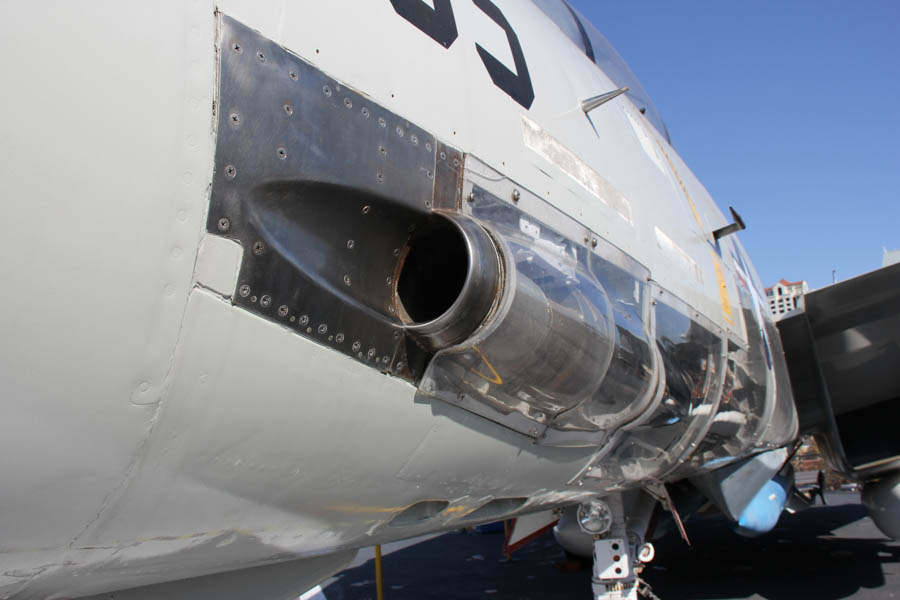
This can throw 6,000 rounds a minute BUT
It only holds
675 counds
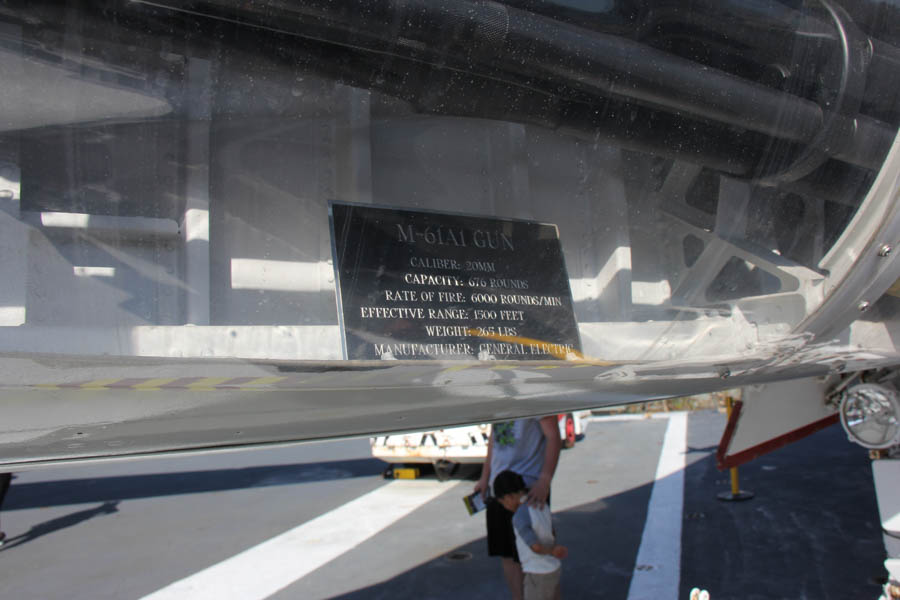
Made by General Electric
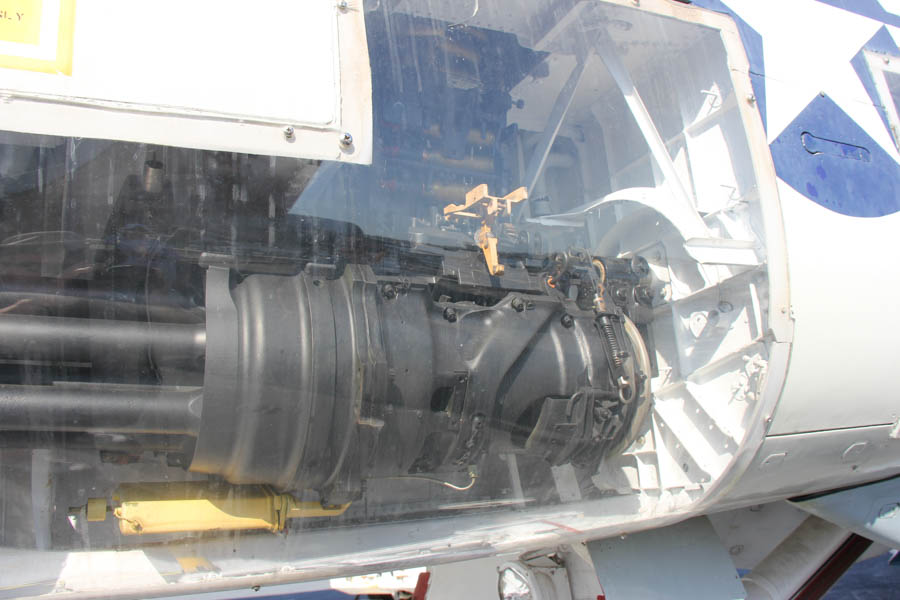
The chamber is fed by a belt over the top

Cartridge storage unit
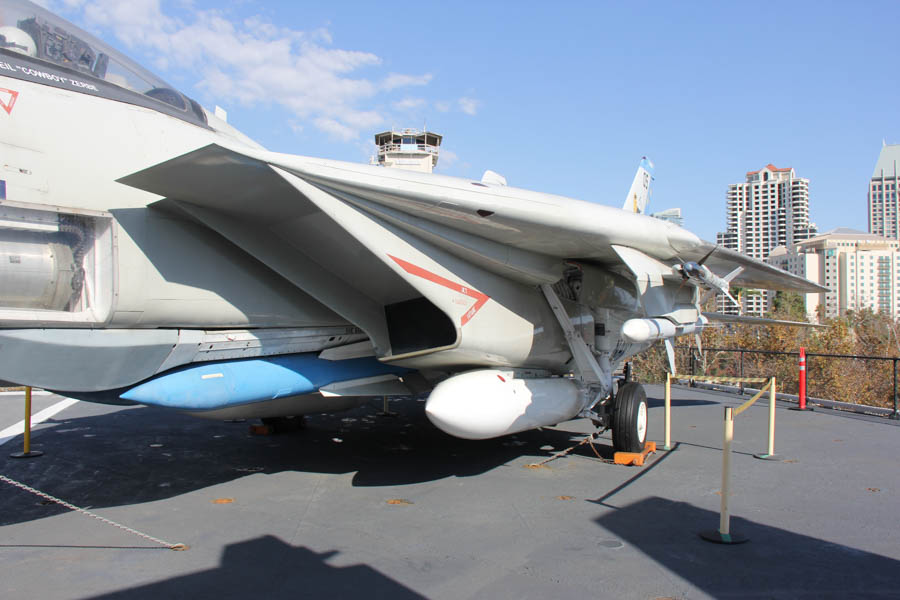
,,,and the wing is loaded with little devils also!
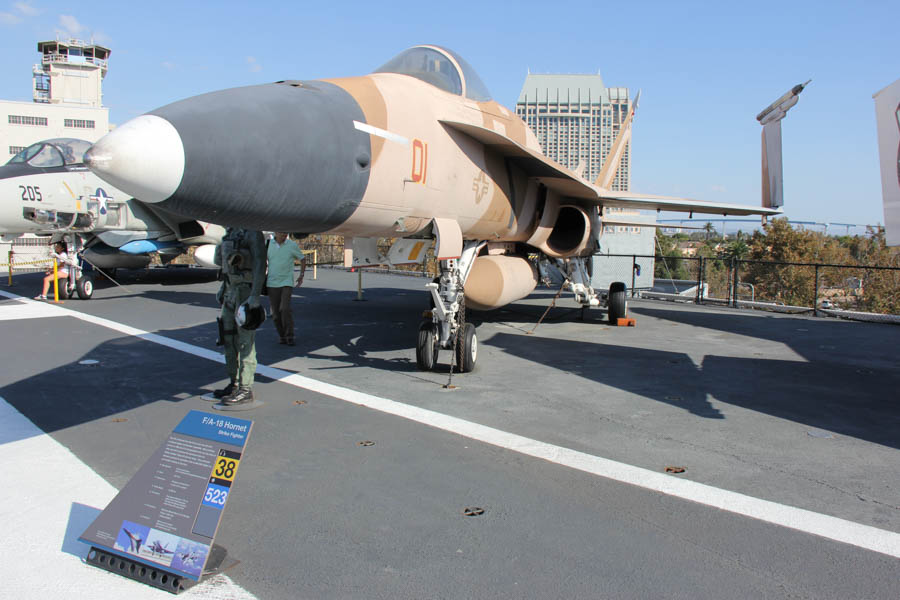
The Hornet was quite amazing and 1500 were built
Did You Know? - The McDonnell Douglas F/A-18 Hornet is a twin-engine supersonic, all-weather carrier-capable multirole combat jet, designed as both a fighter and attack aircraft (hence the F/A designation). Designed by McDonnell Douglas (now Boeing) and Northrop, the F/A-18 was derived from the latter's YF-17 in the 1970s for use by the United States Navy and Marine Corps. The Hornet is also used by the air forces of several other nations and, since 1986, by the U.S. Navy's Flight Demonstration Squadron, the Blue Angels.
The F/A-18 has a top speed of Mach 1.8 (1,034 knots, 1,190 mph or 1,915 km/h at 40,000 ft or 12,190 m). It can carry a wide variety of bombs and missiles, including air-to-air and air-to-ground, supplemented by the 20 mm M61 Vulcan cannon. It is powered by two General Electric F404 turbofan engines, which give the aircraft a high thrust-to-weight ratio.
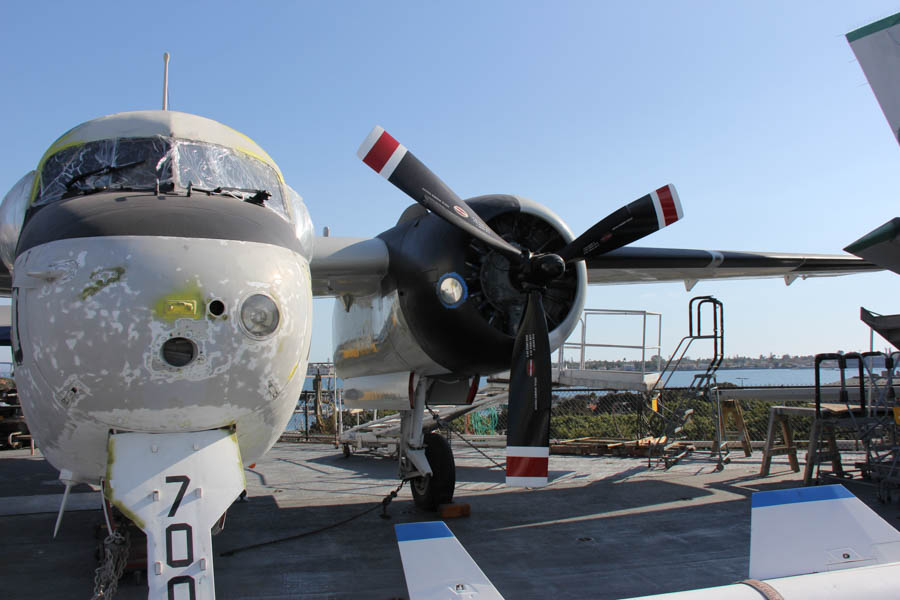
He is getting a paint job!
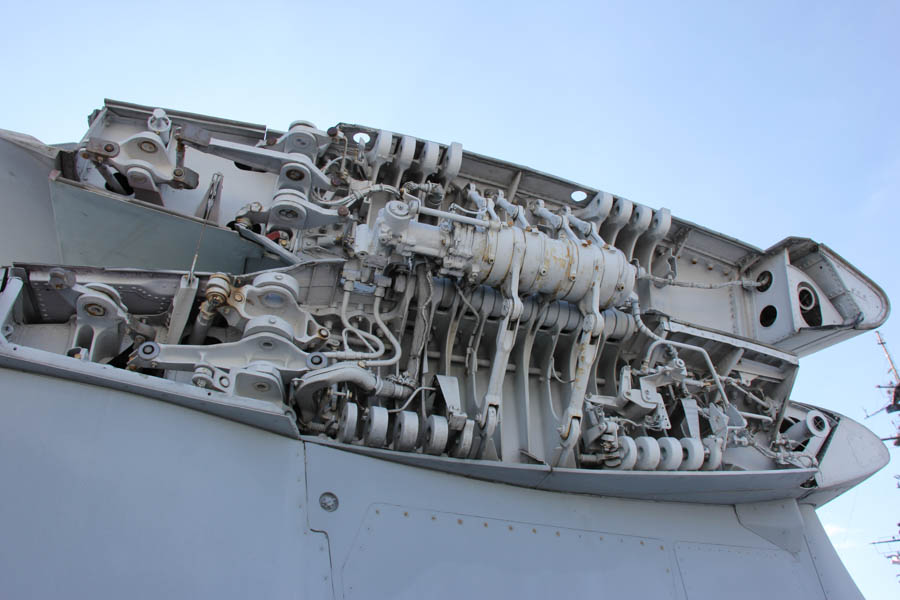
Amazing mechanisms inside the folding wings
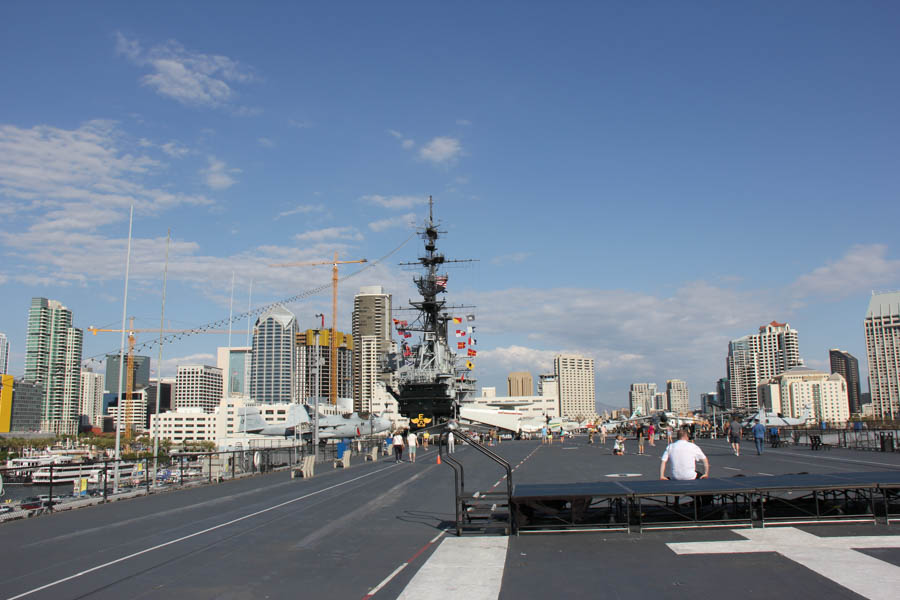
The landing area seems like it goes on forever


The ceilings are low....
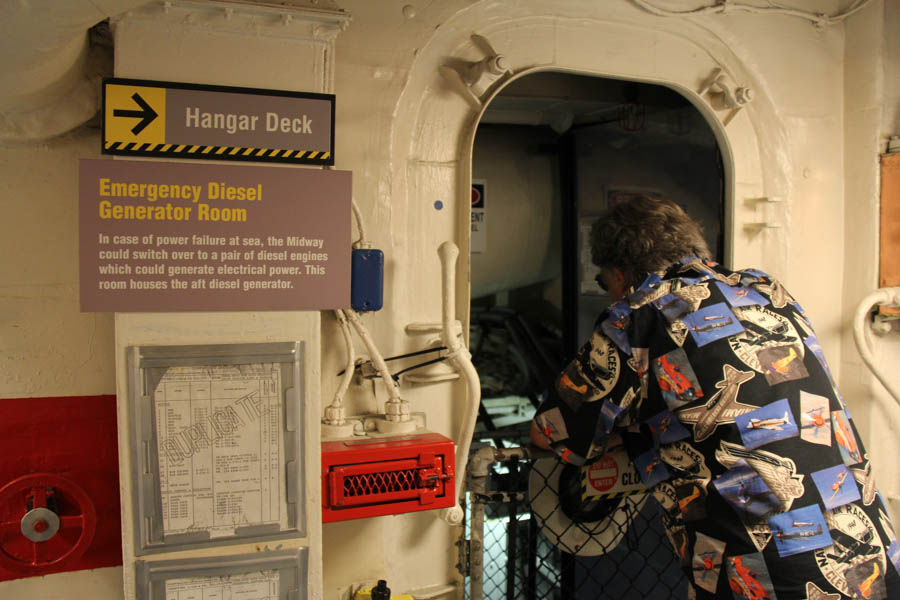
Brian was amazed at the size of the emergency generators

Valves and wires ran all over the place

How to feed 4,104 officers and men!

The receipts were amazing... The quantities not normally imagined!

Careful Brian!
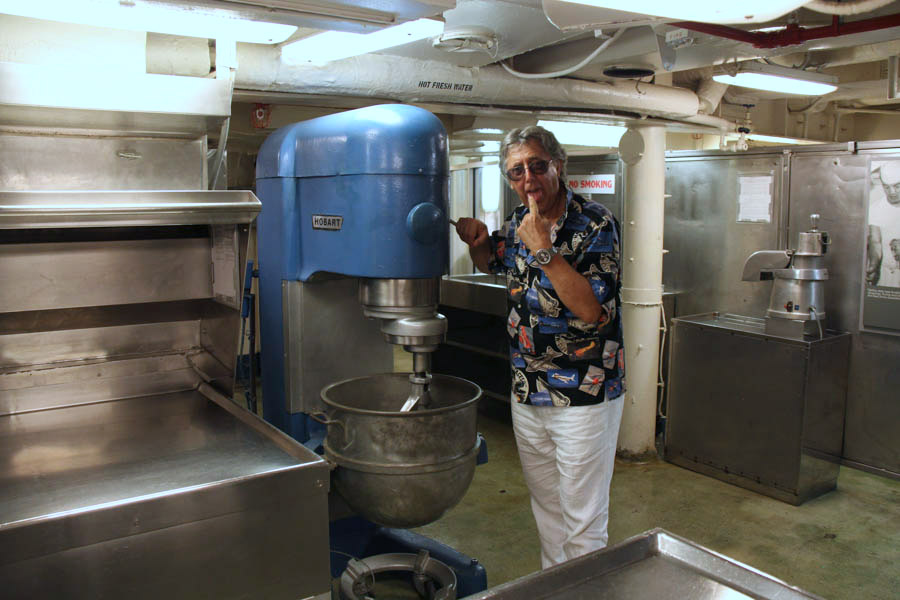
"Taste good??"

"How about we mix up a couple of hundred gallons of soup!"
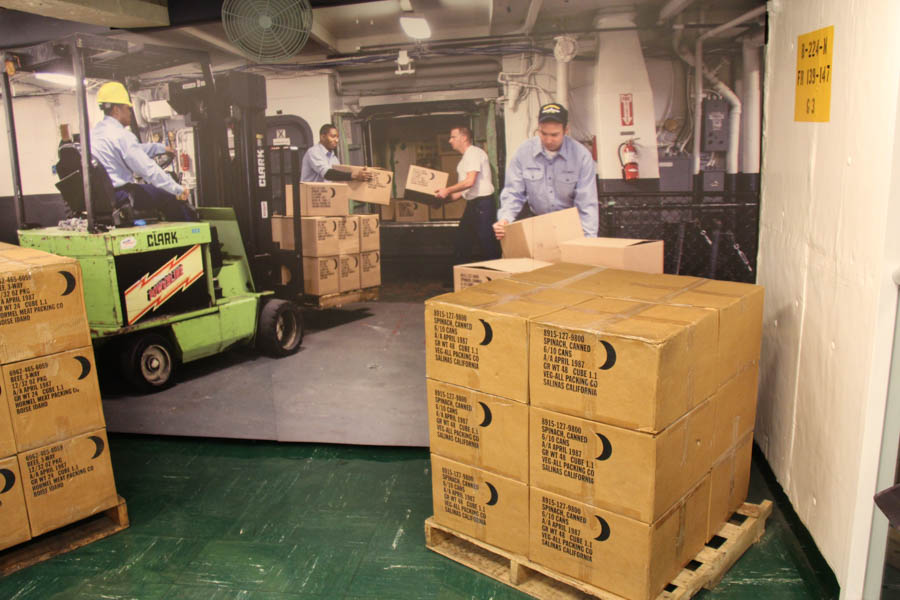
The below decks were like a series of small specialized storage units!
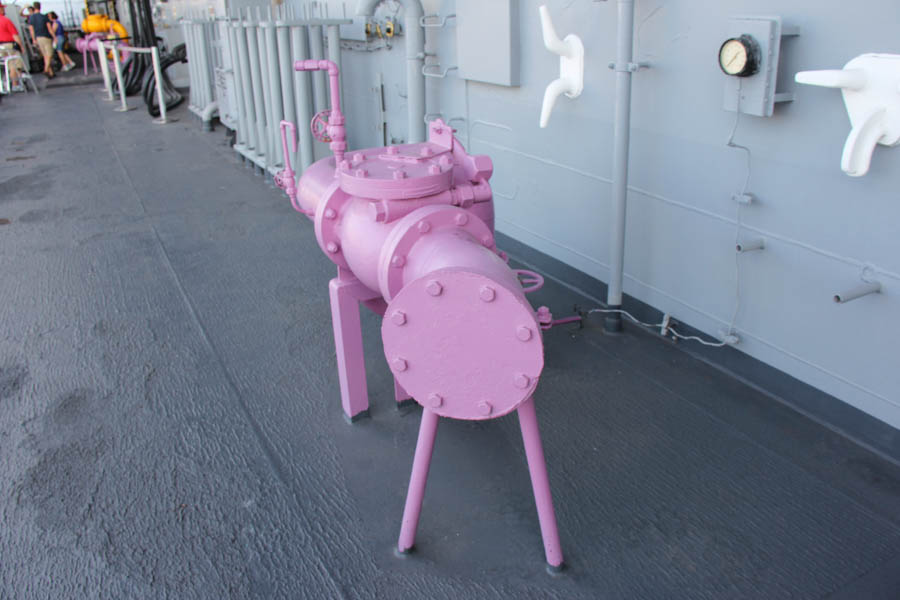
Pink??
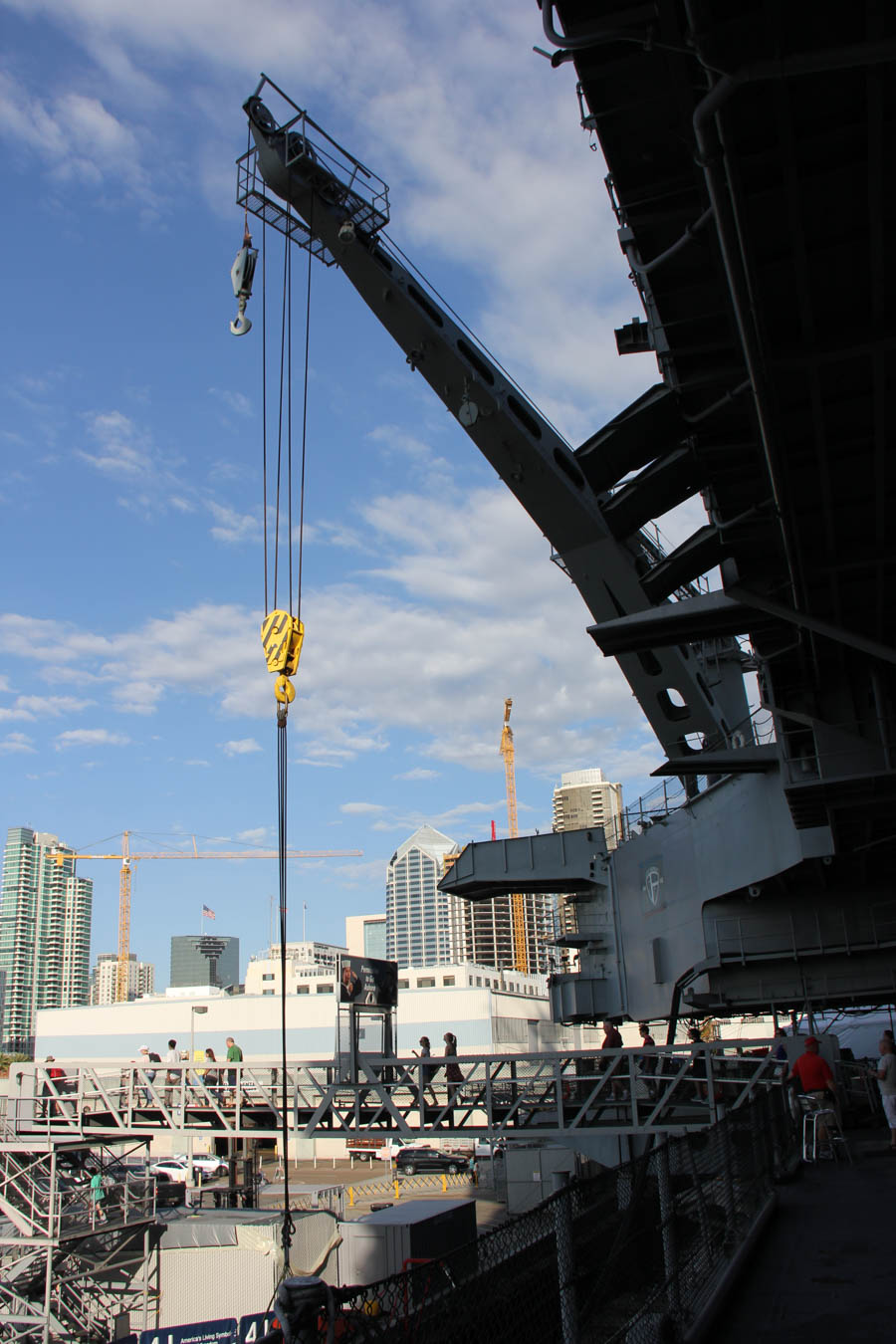
We were a long way up!
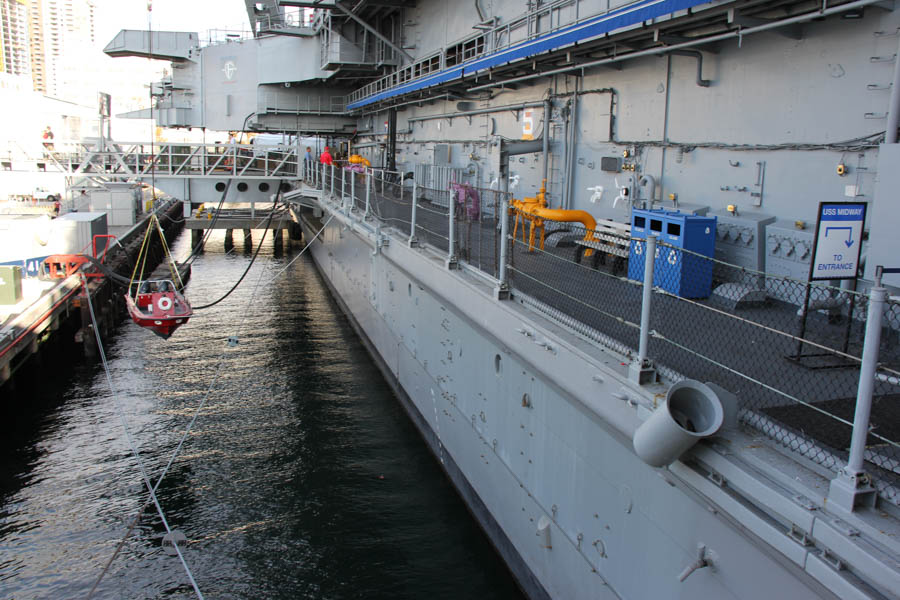
They were lowering the boat into the water
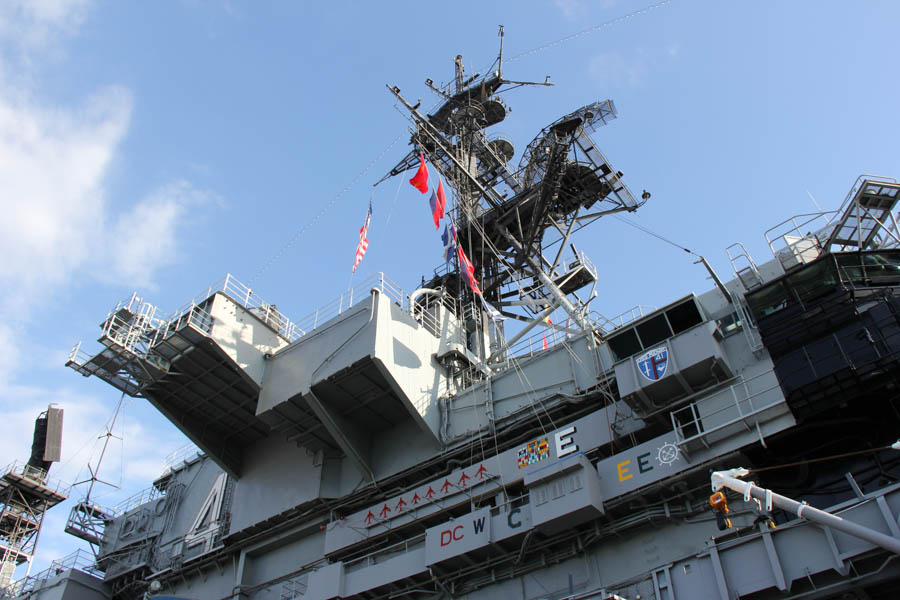
It was a dizzying view!
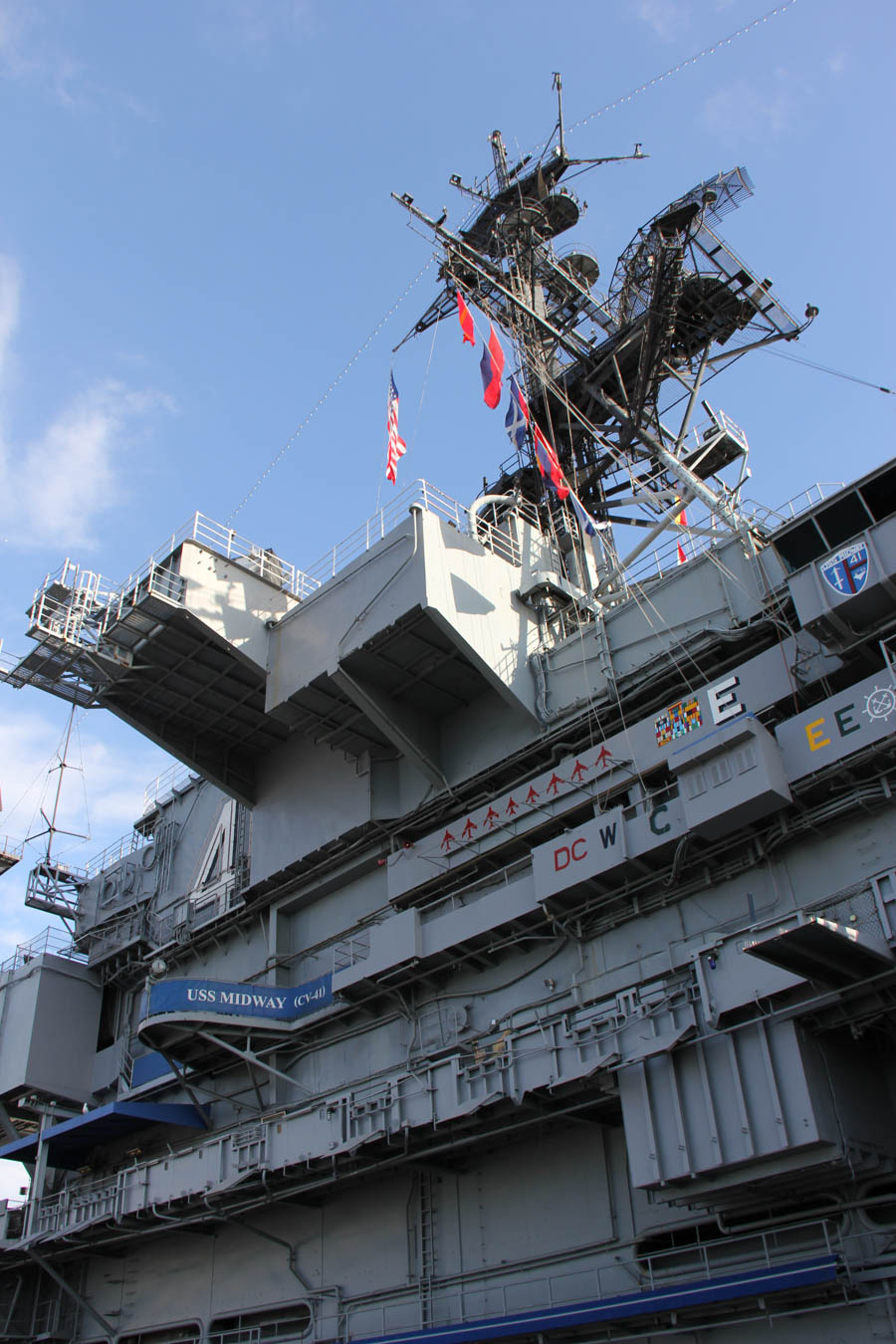
Just an amazing piece of work!

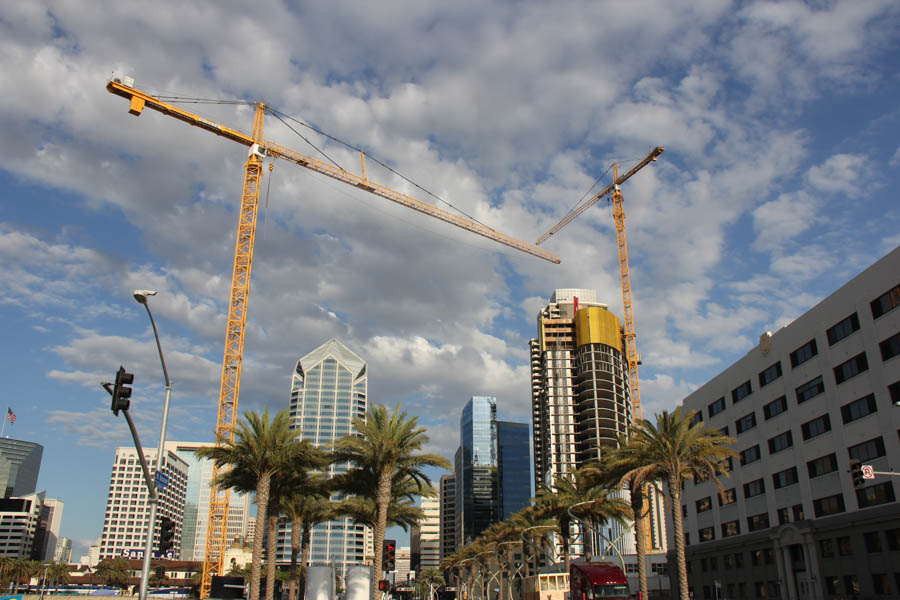
How do they work? Weights and balances
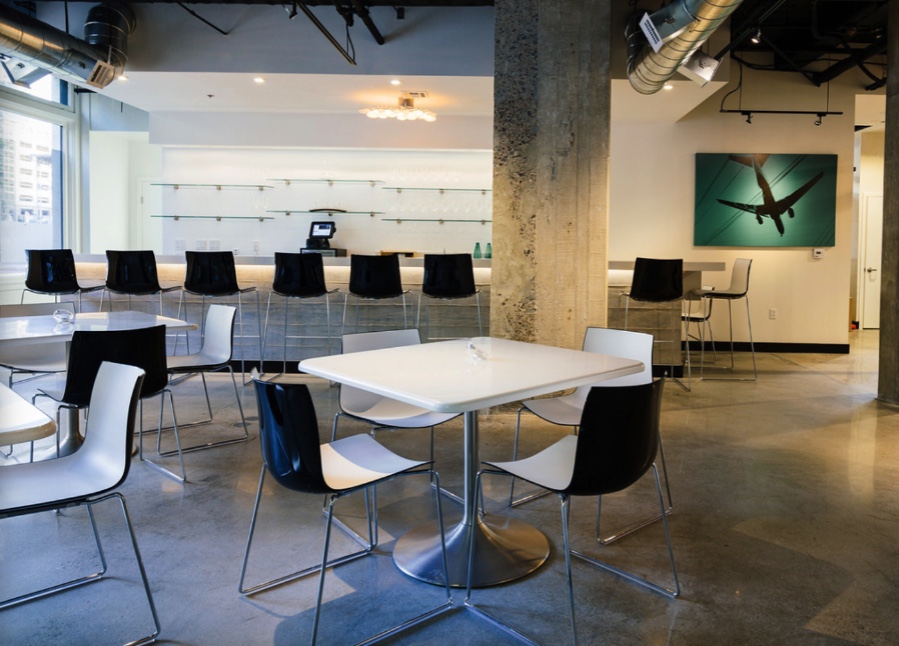
To "The Flight Path"
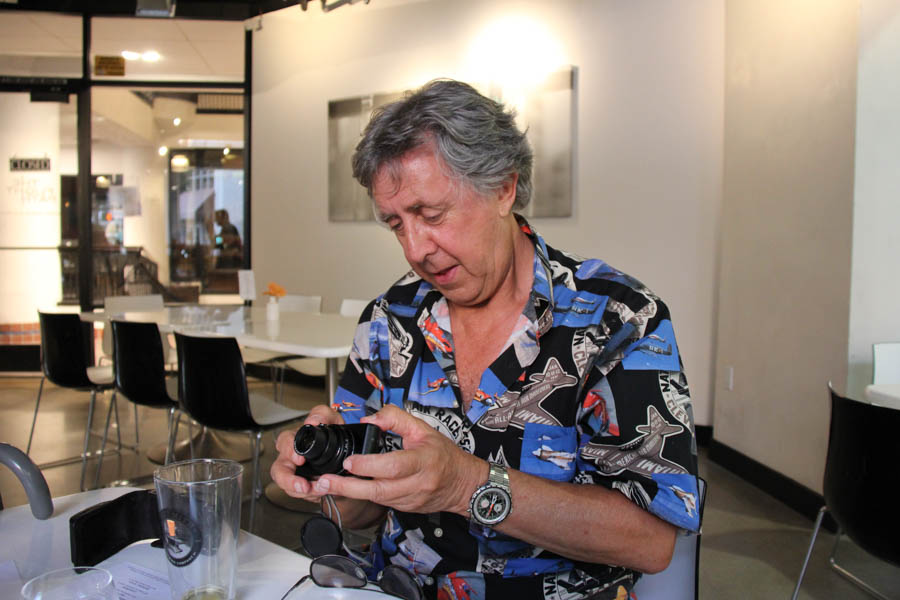
Adjusting the settings

Jan watches all the activities

Can he do it???
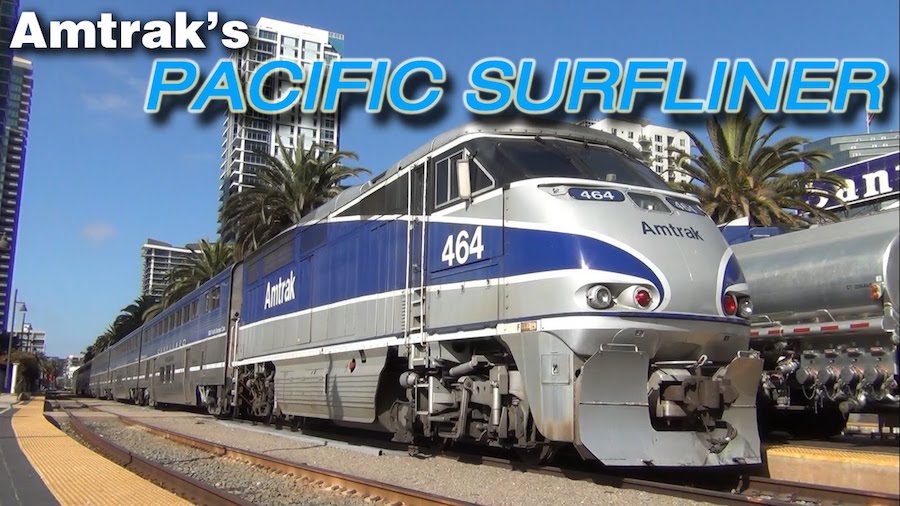
We caught the 6:40 train going north

Time for wine.... Of course!
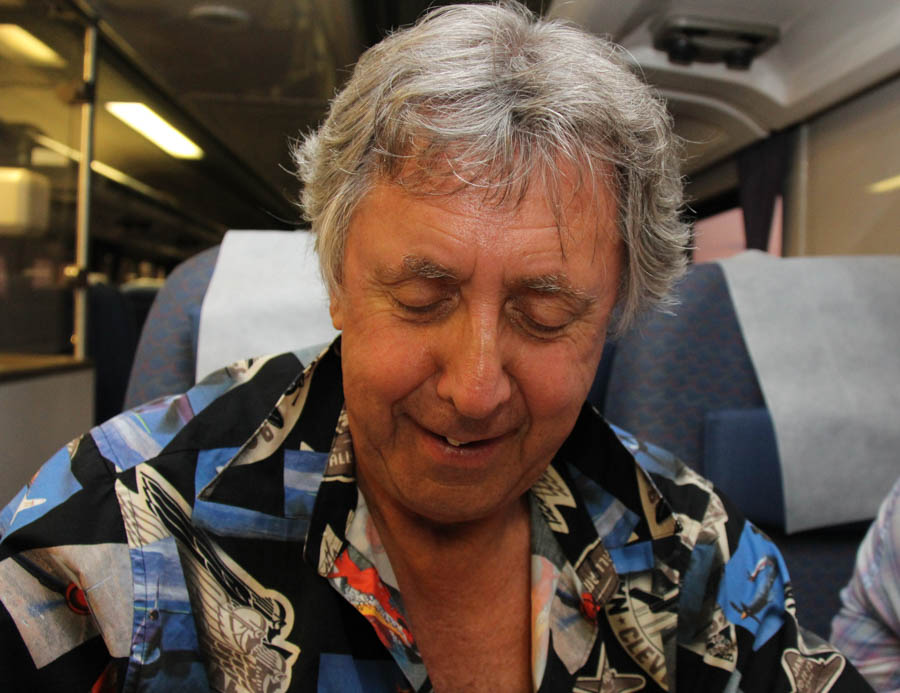
We got a sack of health food to eat while drinking our wine

"Health food??"

Jan said the only thing health was the paper it came in!

We really made a mess of things
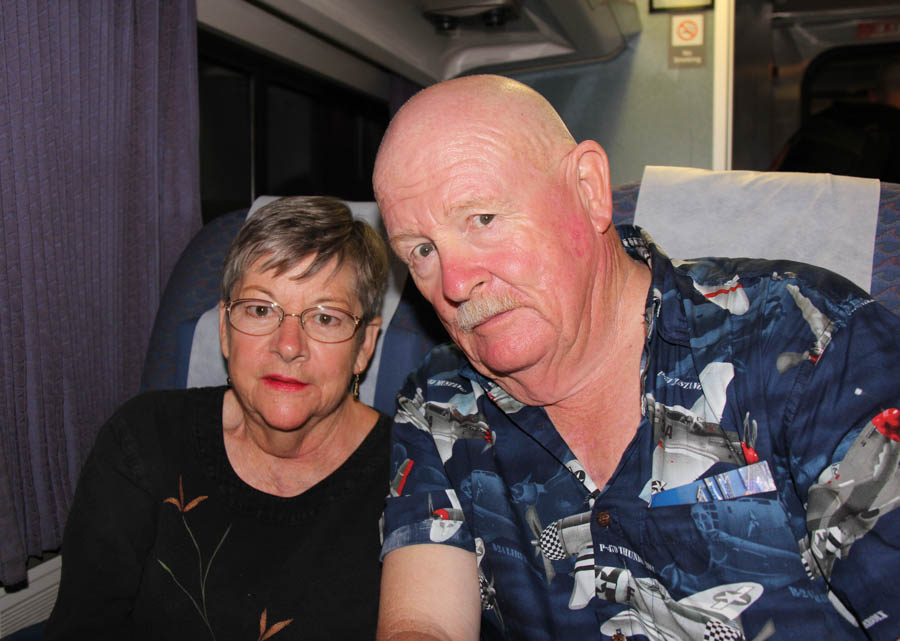
We made it!

Even managed a smile
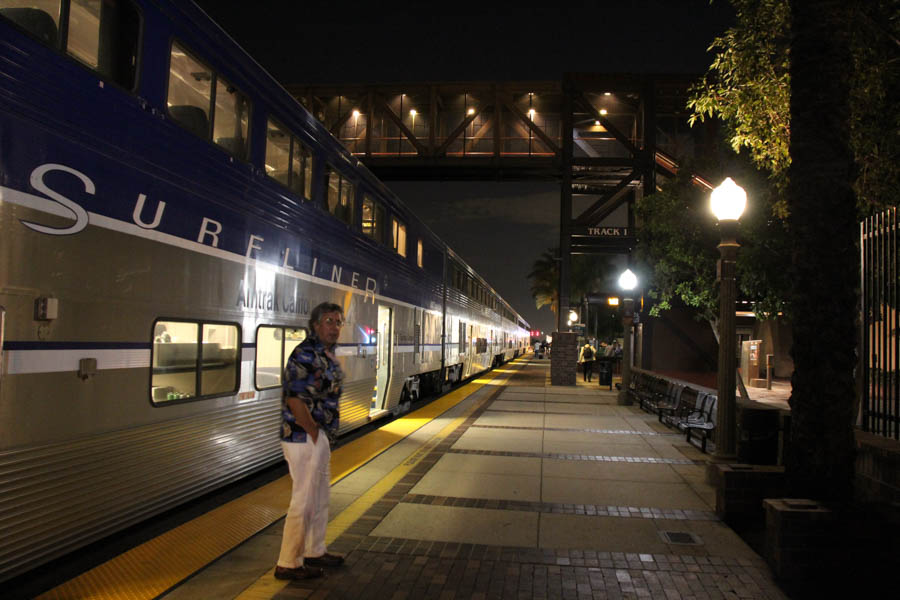
Two hours later we arrive safely in Fullerton!
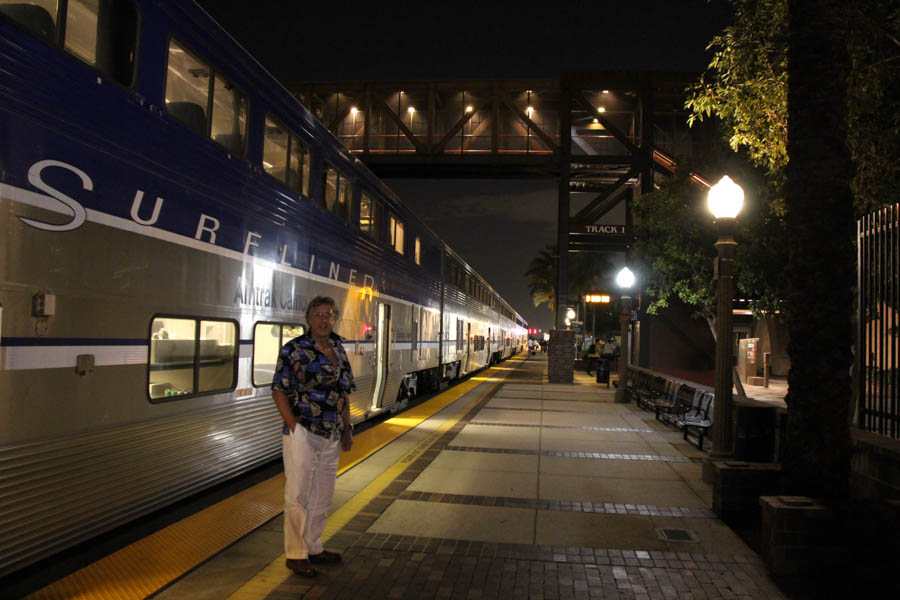
"Bye you all"...... But you are going with us!

Seal Beach is 24 minutes away!

Quotation To Remember: